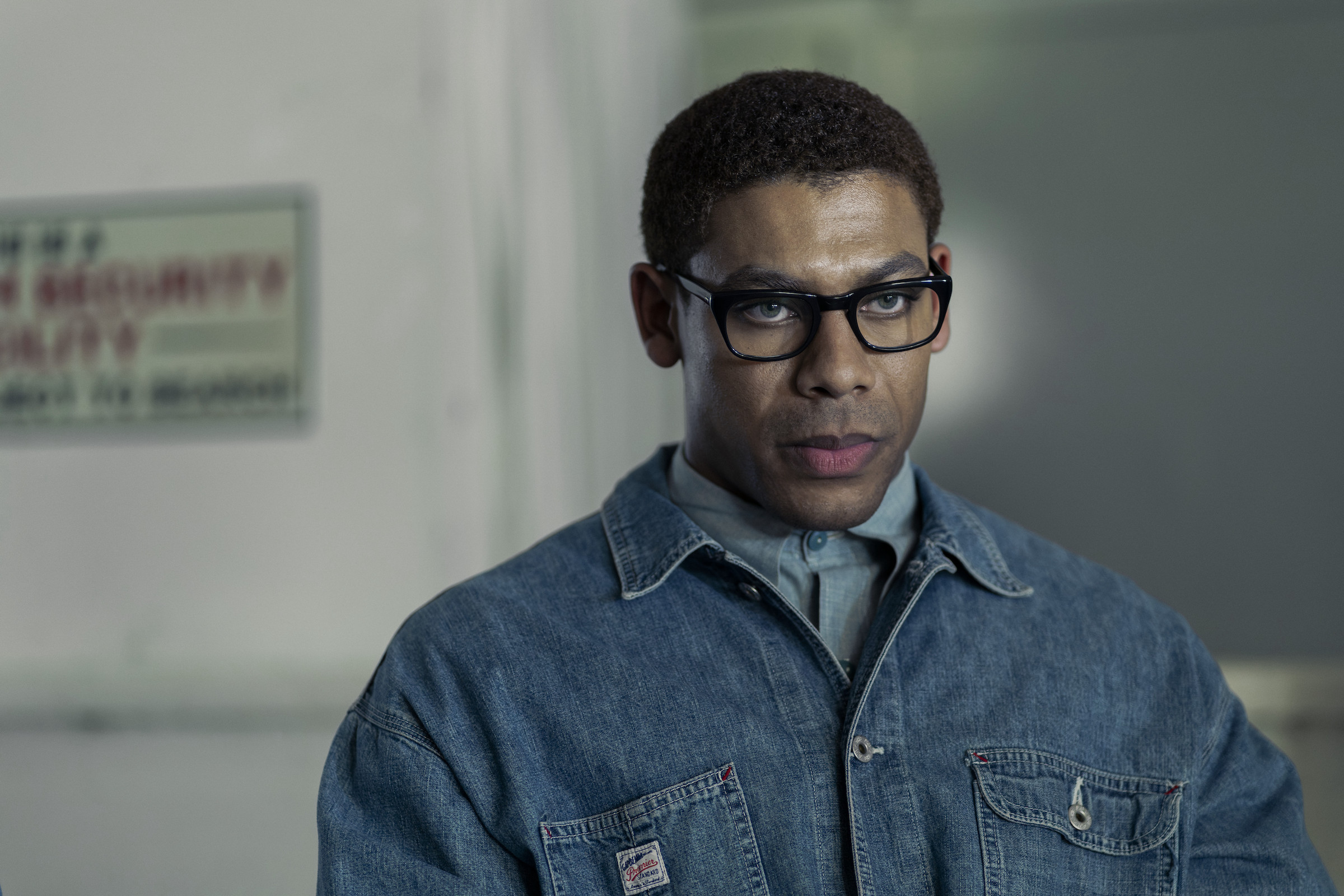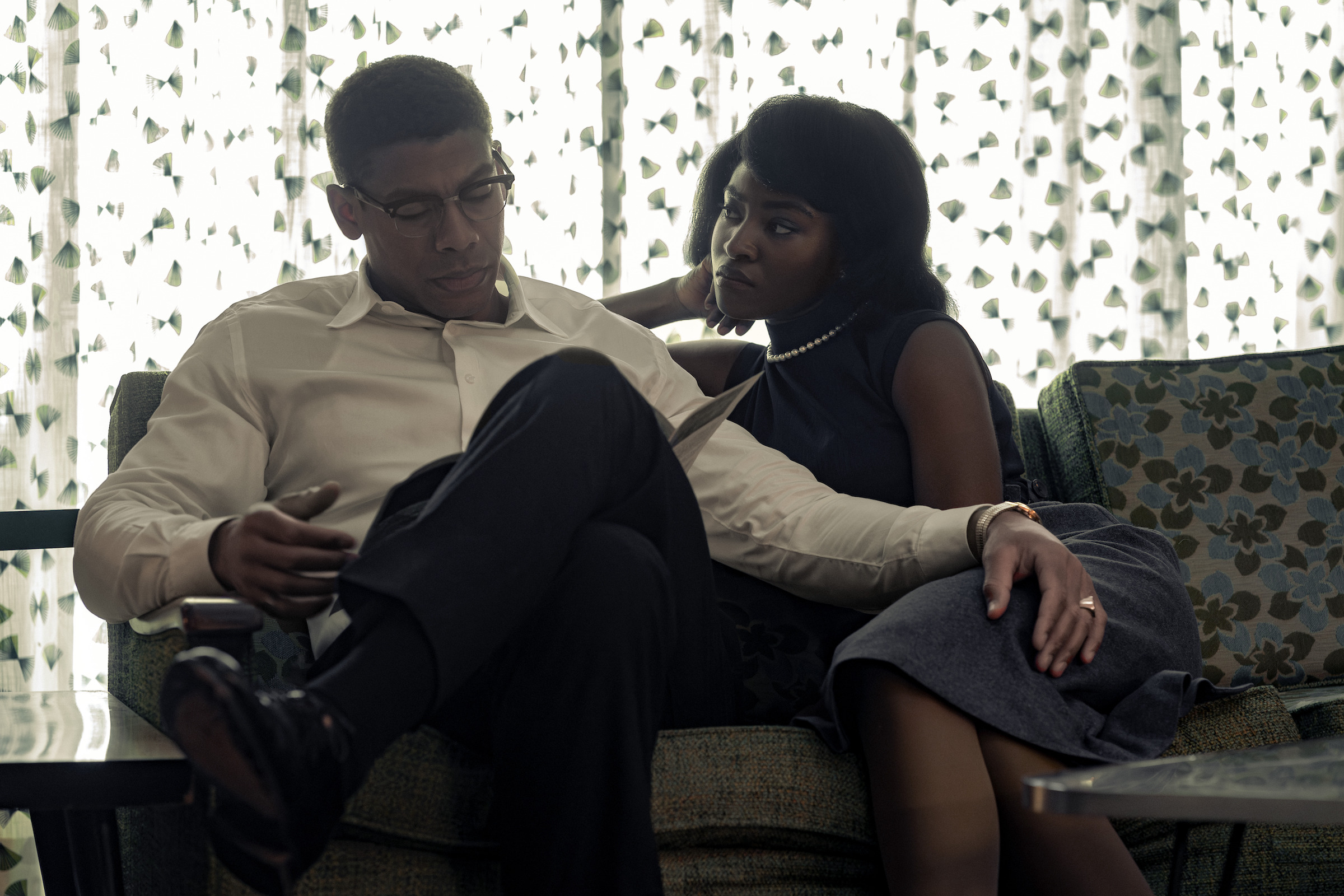
Genius: MLK/X, a NatGeo docudrama premiering Feb. 1, tells the stories of two of the most influential American civil rights leaders: Malcolm X and Martin Luther King, Jr.
While the U.S. has been celebrating Black History Month every February since the 1970s, the accomplishments and teachings of Malcolm X remain misunderstood. In American schools, the Muslim activist is often presented as the violent counterpart of Martin Luther King, Jr., who preached nonviolence.
But Genius: MLK/X aims to paint a more indepth and human portrait of both King and Malcolm X. The limited series shows King (Kelvin Harrison Jr.,) and Malcolm X (Aaron Pierre) leading parallel lives—they only met once—while highlighting the contributions of their wives Coretta Scott King (Weruche Opia) and Betty Shabazz (Jayme Lawson) to the civil rights movement.
Below, Pierre, 29, talks to TIME about playing a figure like Malcolm X and how he sees the civil rights leader’s words resonating today.
How does playing Malcolm X compare to your past work (Caesar in 2021’s The Underground Railroad among others)?
I was terrified when I was first given the offer because I immediately acknowledged the enormity of the responsibility. Staying in that specific space—mentally, emotionally, spiritually, and physically—for six months was not easy. And I say physically because Malcolm X and I are of similar height. He's arguably broader than I am, but I have significantly more mass when I walk around day to day, so I was on the Stairmaster more or less every single day for six months keeping that weight off.
How else did you prepare for the role?
The first place I went was Malcolm X’s autobiography, and I think the second place I went was a documentary about Malcolm X that was helmed or at least guided by [Malcolm X’s wife] Dr. Betty Shabazz. Of course I [consulted] real life footage of him where he was speaking, being interviewed and things like this. I wanted to get information as close to the truth as I could.
I was very fortunate to step into this journey with a considerable amount of knowledge about Malcolm X, what he stood for and represented. I credit my parents for that. I credit my grandparents for that. I'd be lying if I said that the life and legacy of Malcolm X was shared with me within an educational setting.

The series portrays MLK and Malcolm X as pursuing different paths to the same goal of racial equality? Who do you think was right?
I celebrate and champion both. Malcolm X, and Dr. Martin Luther King Jr. had the same objective, and the only difference is that they arrived at somewhat different conclusions about how to achieve that.
Did you have a moment during filming where you thought “Wow, this scene really applies to today?”
At the end of Episode 7, we do a speech of Malcolm's called “The Ballot or The Bullet” which is one of his most well-known speeches. In a portion of that speech, he says something like, anytime you're living in the 20th century, 1964, and you're walking around here singing “We Shall Overcome,” the government has failed you.
Now that particularly moved me because in recent history there have been moments where Black people have suffered extreme injustice and have made the collective decision to go to the streets and sing. And there was a song that was sung by Kendrick Lamar called “Alright,” and a portion of that song “we're going to be alright.” So that particular part of “The Ballot or the Bullet” really moved me because I thought, here's Malcolm speaking on 1964, and we're in 2000-whatever and we're also singing. And it reminded me that progress has been made, steps in the right direction have been made, but there is also a seriously long way to go as well.
Read More: The Enduring Mystery of Malcolm X’s Assassination
Are there any myths or misconceptions about Malcolm X that you hope the series will debunk or set the record straight on? I know his views on violence are often misunderstood, for example.
My viewpoint is that Malcolm never advocated violence. What he advocated was protecting yourself. Should a situation arise in which your life is being threatened, in which your loved ones’ lives or wellbeing is being threatened, you have the right to protect that and defend that. What I'm most excited about is for this limited series [to be] a starting point to people gaining a deeper insight into these iconic geniuses.
More Must-Reads From TIME
- The 100 Most Influential People of 2024
- Coco Gauff Is Playing for Herself Now
- Scenes From Pro-Palestinian Encampments Across U.S. Universities
- 6 Compliments That Land Every Time
- If You're Dating Right Now , You're Brave: Column
- The AI That Could Heal a Divided Internet
- Fallout Is a Brilliant Model for the Future of Video Game Adaptations
- Want Weekly Recs on What to Watch, Read, and More? Sign Up for Worth Your Time
Write to Olivia B. Waxman at olivia.waxman@time.com